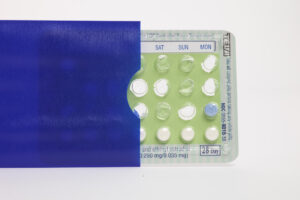As college students, we spend a lot of time staring at screens. We’re often looking at our laptop or phone screens whether it’s for an assignment or trying to avoid eye contact with someone in an awkward situation. There have been a lot of rumors about phones regarding their effect on brain health and eyesight, but should we really be worried?
While many rumors about phones giving off deadly radiation have been debunked, there are some consequences of using phones and laptops for extended periods of time. One of most common side effects of too much screen time is eye strain which can cause your vision to suffer. Research from Princeton University has found that the factors resulting in eyestrain are glare, duration of use, and position of the monitor. To eliminate eyestrain, make sure your computer monitor is positioned 18-30 inches away from your eyes and there is no glare.
This may not seem like the worst consequence to suffer, but more extensive research proves that screen time before going to bed causes the main problems related to screen time. Most of these problems are related to the blue-light emitted by the LED (light-emitting diode) lights which are responsible for backlighting your cell phone, tablet, computer and television. Dr. Joseph Mercola claims, “Blue light, which is prevalent when the sun is bright and overhead, is particularly problematic. Photoreceptors, or light-sensitive cells, in your eyes track blue light…”
Dr. Mercola further explains that during bed time, the lack of blue-light received by our brain after the sun sets and the lights go out triggers the release of melatonin. This is what makes us feel tired at night and want to go to bed. One thing that can interrupt this is the blue LED light. Blue light has the capacity to suppress the release of melatonin, making it harder to fall asleep.
A case study that supports this data discovered that adolescents who used their phone after lights out were found to be more tired after a year due to lack of sleep than those who didn’t use their phones after lights out.
In a recent study conducted at Baylor University, it was found that women college students spend 10 hours a day on their smartphones while their male counterparts spend up to eight hours on their phones. Many college students do admit to being addicted to their phones and even feel anxious if they do not have their phone near them.
The technology we have at our finger tips is truly remarkable but like anything else: moderation is key. Too much screen time can have many negative effects, the most prominent being lack of sleep because of the LED blue light’s affect on melatonin release. The best way to avoid eyestrain and fatigue is to simply limit your screen time, specifically when it’s unnecessary.









Add Comment